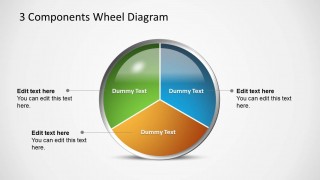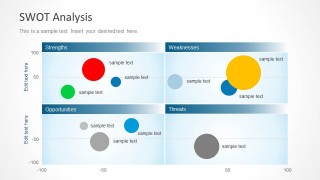Copy and paste the code below into your blog post or website
Copy URL
Embed into WordPress (learn more)
Comments
comments powered by DisqusPresentation Slides & Transcript
Presentation Slides & Transcript
Committees!U3A is the only national education organisation in the UK run entirely by its own members.
Committees, it’s a group thing!
Subject to the matters set out below the U3A and its property shall be administered and managed in accordance with this constitution by the members of the Executive Committee, constituted by clause 6 of this constitution.Clause 2 Model Constitution (NI)
The Chair A Vice ChairA Business A TreasurerSecretary You must have four officers:There must be at MINIMUM of 5 members on the committee. 10 -12 is usual.
But shouldn’t have:Or:The few The rest
...and certainly not:
Every matter shall be determined by a majority of votes of the members of the Executive Committee present and voting on the question but in the case of equality of votes the Chairman of the meeting shall have a second or casting vote.Clause8 (vi) Model Constitution (NI)
All U3As sign to agree to abide by the OBJECTS AND PRINCIPLES of the U3A.Obligation:
When in doubt .......CONSTITUTIONOBJECTS AND PRINCIPLES
Spreading the load
Finance, to support the treasurerMembership, to support the membership SecretaryNewsletterWebsiteMonthly meetings arrangementsPRInternal communication, working with the business secretary.Bookings, through the Treasurer.Education, to support the Groups’ co-ordinatorHolidays / trips Direct Mail organiser (Third Age Matters magazine) Occasional sub-groups and working parties:Study daysOpen daysInterest Group fairsThe AGM, to support the business secretary.Possible sub-committees and working parties:
Coming together is a beginning. Keeping together is progress. Working together is success. Henry Ford.
Back to the committee itself ..........................
A good idea or a bad idea?Job descriptions:
Stay loose and fluid in your thinking until an approach is agreed and needs to go to the next stage.Protect new ideas from criticism.Acknowledge good ideas, listen, and show approval.Eliminate status or rank.Be optimistic.Be supportive if there is confusion or uncertainty.Value learning from mistakes.Focus on the good aspects of any idea; you may be able to incorporate it.Share the risks.Suspend disbelief.Do not evaluate too early. These actions seem to encourage problem solving:
Interrupt, criticise.Be competitive.Mock people.Be dominant.Disagree, argue, challenge.Be pessimistic.Simply point out flaws.Inattention, do not listen, use silence against people.React negatively.Insist on “the facts” as an end in itself.Give no feedback, act in a non-committal fashion.Pull Rank.Become angry.Be distant.These actions seem to discourage problem solving:
The Triune BrainReptilianLimbic systemCortex & Neo CortexSurvivalEmotional and long-term memoryAMYGDALAAnxious responseHigher order thinkingTherefore problem solvingCan block out cortex & neo cortex activity
DECIDE WHERE YOU WANT TO BE.LIST THE FORCES WORKING FOR YOU, THEN AGAINST YOU.USE THE FORCES WORKING FOR YOU AND COUNTERACT THE FORCES WORKING AGAINST YOU IN ORDER TO MOVE FROM WHERE YOU ARE, TO WHERE YOU WANT TO BE.Planning:
Force Field AnalysisWHERE YOU WANT TO BEForces working for youForces working against youWHERE YOU ARE NOW
Change, Transition or Moving Forward?Colin Carnall
Target: What are we concentrating on? This is because ...Success Criteria:What will it look like?FIRST STAGEON COMPLETIONActions
The pace of change needs careful planning, longer planning leads to quicker implementation. Have a clear strategic aim. Identify who will do what!. The membership achieves ownership of the idea. (Takes time so plan early) Aim for the maximum compatibility with existing structures so that members feel less threatened. Focus on cross-functional problems, that is to say problems that concern more than one group or role. Pragmatism. People respond to changes if they appear to address problems they recognise.Build in systems to REWARD relevant behaviour. E.g. provide early feedback.Role modelling is important.Preparing people for new roles. There is little point in doing this before the need for change has been accepted. An Agenda for Implementing Change.
Communication is a key:
Start a POLICIES BOOKAppoint a MINUTES SECRETARYHave a “shadow” for committee officersHave a SUGGESTIONS BOX / LIST for new interest groups at every general meetingRecruit VOLUNTEERS in twos or threesRecruit volunteers FACE to FACEHave a GROUPS’ FAYRE once a yearPut regular PRESS RELEASES in the local paperDELEGATE, DELEGATE, DELEGATE!Additional Tips ..........
If you always do what you've always done, then you'll always get what you've always got.“(used by various speakers)






